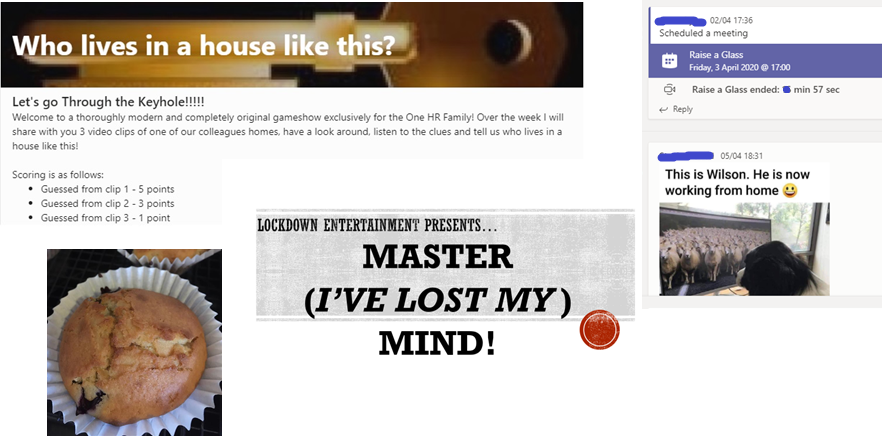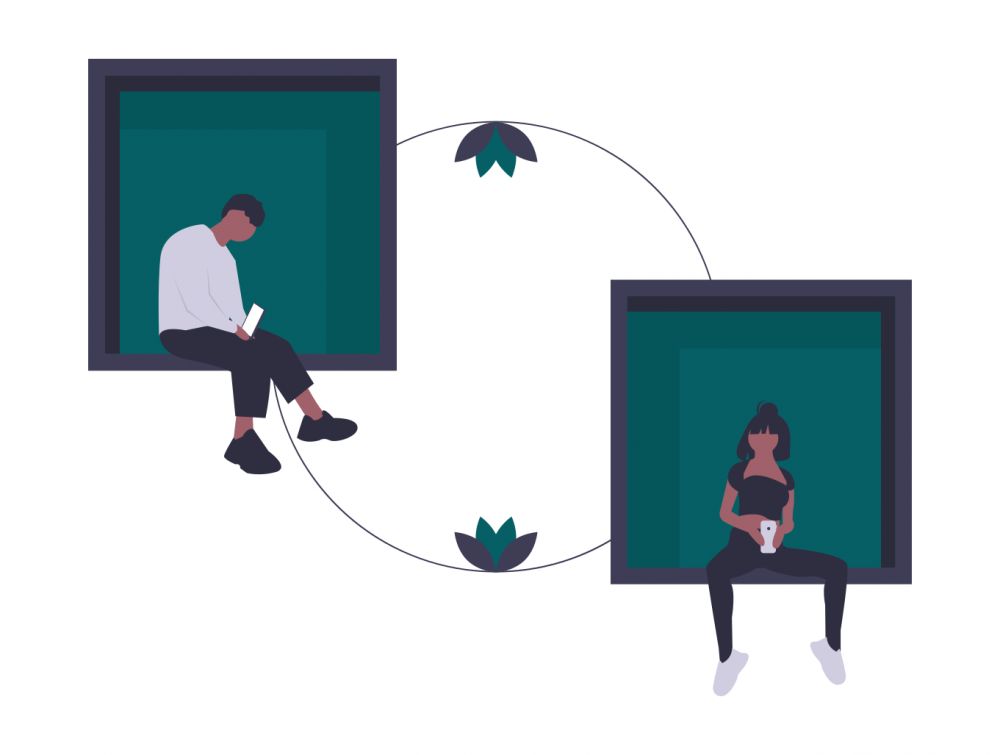We have been collecting stories over the last few weeks of how teams have stayed connected with one another despite being physically separate. We have already shared one of those in this guest blog. But we keep hearing such wonderful ideas that we wanted to write more. So this blog shares examples from teams of all shapes and sizes, and from academic teams as well as professional services.
Many of the teams we spoke to have found that regular meetings help colleagues to understand what is going on. These included daily short huddles for whoever is free that day, which give everyone a touchpoint – an opportunity to check-in. “It’s helped us stay connected and focused on the work in hand, and acted as a bit of an anchor”. “It is really good to keep in touch with colleagues if only to ask – how are you doing? Everyone has a rant and a vent at times – and we all feel better for it!”.
Other teams, who prefer to work more autonomously, talked about weekly meetings which often seem to be a mix of work matters with a fair smattering of social – tea and cake seem to feature strongly and these often seem to happen on a Friday afternoon as a wind down to the weekend.
That social aspect certainly feels like an important thread as we have lost so much incidental chatter and contact with each other now we are not sharing the same campuses (is it weird I wanted to say campii then??!!). I have heard of colleagues joining in quizzes and games of Pictionary together; recipes have been swapped, garden tips exchanged and bread making strategies compared. In HROD we have had occasional Through the Keyhole challenges, which are surprisingly difficult but a wonderful insight into colleagues lives. Teams were keen to stress this social aspect is always optional (one persons fun is another’s nightmare) but well attended! I have had comments that “We are getting to know each other better than we ever did before lock down, and certainly communicating more and with more frequency” and “Humour has been pivotal throughout and I feel that everyone is the closer for it”.

Colleagues who are isolating alone have felt that these opportunities to connect (and simply see other faces) have been vital, and that the conversations have normalised everyone’s lockdown experience. “There are people who enjoy working from home and there are others who do not, so make it work for you.”
These meetings and touch points have been supplemented with using Teams channels. “We have a Teams channel set up for the whole department and sub channels for each team. We also have an ‘off topic’ sub channel where everyone is encouraged to post whatever they like. It’s aimed to be a bit of a replacement for the chats in the kitchen at work while you’re making a cuppa. A few of us have really embraced the use of GIF’s, which is a fun way to have an online chat. We use it as a place to say hello to each other each morning, share photos (mainly cakes/food as I think we are all missing the regular treats in the kitchen to celebrate birthdays!), jokes etc.”
The Public Health team have used the 5 Ways to Wellbeing as a way to support each other. They have paired up and each have to think of a challenge for the other person that meets one of the 5 Ways: Connect, Give, Keep Learning, Be Active and Take Notice. They also recognise the power of the model in supporting themselves with their team: “When we want to moan and say how terrible everything is – the 5 ways can help. For example: Be Active – do something before you say it, like a star jump – for some of us we’d be too out of breath to moan; Connect – rather than being with people in endless meetings, trying to connect by actually taking time, without feeling guilty, to have a virtual cuppa with a colleague”.
If you are reading this and feel that your team isn’t being as connected as it might be, have a think about what you could do to change that. The ideas or actions don’t need to come from the leader, why not reach out yourself?
If you are a leader of a team, in a future blog we will look at creative ways of building your team while we are operating in a remote way. In the meantime you might be interested in this blog written by colleagues from Belbin (the team roles experts), who will be joining a #CoachingHE tweetchat on Monday 1st June 4-5pm, focusing on “Meeting your team’s psychological safety needs in the time of Covid19”. We are also running a number of workshops for leaders to help you think about how to best support your team.
Thanks to all those who contributed in some way to today’s blog: Kellie, Becky, Gemma, Karen, Adele, Athene, Jake, Jamie, Sally-Ann, Lucie, Shauna, Peter, Liz and Andy.
Juliet Flynn, Organisational and People Development
 People, Culture and Inclusion
People, Culture and Inclusion Juliet Flynn
Juliet Flynn 201
201


